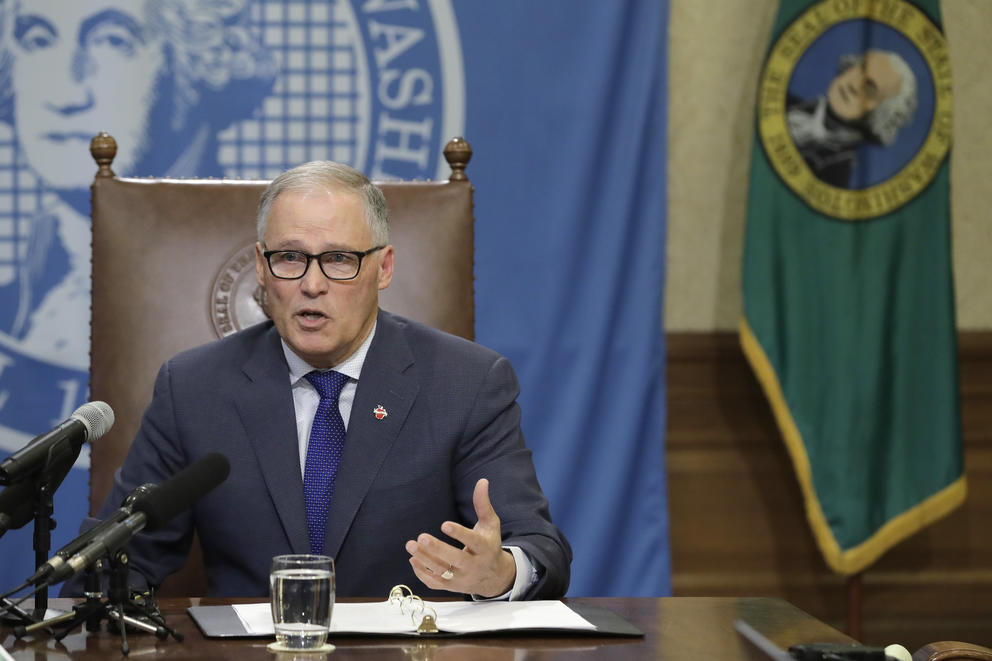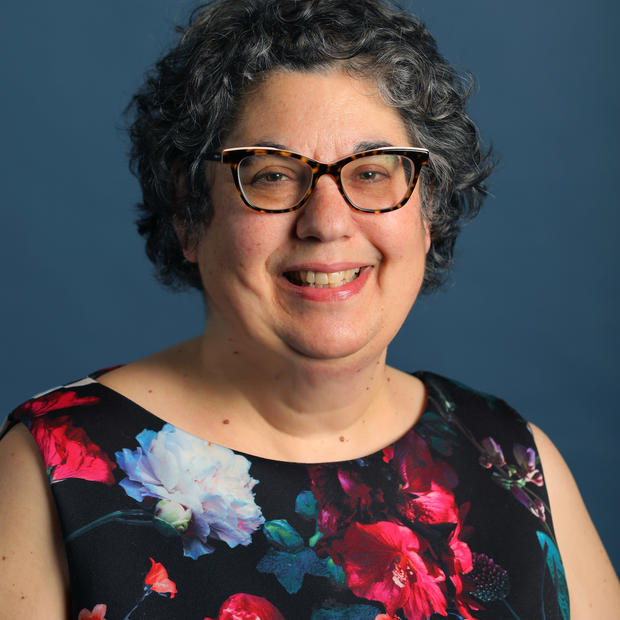Editors note: This story was updated Dec. 8 to reflect Inslee's announcement that these restrictions will extend through Jan. 4.
Washington state officials are banning indoor social gatherings and ending indoor service at restaurants and bars, following a surge in COVID-19 infections that has mirrored the peaks seen earlier this year.
Starting Monday at midnight, Washingtonians will not be allowed to meet indoors with anyone they don’t already live with. Exceptions will be made if people quarantine for 14 days before the social gathering, or quarantine for seven days beforehand and also have a negative COVID-19 test less than 48 hours prior.
In general, socializing with people from other households will be allowed only outdoors —and only in groups of five or less.
Gov. Jay Inslee announced the new restrictions at a press conference Sunday. He called Sunday the most dangerous public health day Washington state has seen in the past 100 years, citing how the number of average daily COVID-19 cases in the state has doubled in the last two weeks.
"Inaction here is not an option," Inslee said Sunday, warning that the state's hospitals will become overwhelmed if something doesn't change. "We have to take bold, decisive action. ...It cannot go on like this."
The new restrictions on restaurants and bars will take effect at midnight on Wednesday, requiring the closure of all indoor dining areas. Previously, restaurants across the state could operate at 50% of their indoor capacity, as long as they limited tables to parties of 5 or less and followed social distancing and cleaning requirements. Takeout and to-go orders will still be allowed.
Retail businesses, including grocery stores, will have to curtail their operations as well, limiting customers indoors to 25% of capacity.
Other businesses will have to close entirely, including some that had recently resumed limited operations under Inslee’s phased reopening plan. Those include gyms, indoor movie theaters and museums. Some, including hair and nail salons, are permitted to remain open at 25% capacity.
No changes were made to the guidelines for K-12 schools and child care centers.
Inslee said he recognized that the new restrictions would cause financial hardships for businesses. He announced $50 million in new grants and loans for small businesses to help soften the blow, but said the state desperately needs more aid from the federal government.
"This is not forever. This is only for now," Inslee said. He said a vaccine is on the way, but Washington residents need to do what they can to save lives until then.
"We need to hold this pandemic down until the cavalry arrives," Inslee said.
The governor’s office initially said the restrictions would last four weeks, but on Dec. 8 he said he was extending them through Jan. 4.
The new rules come shortly after Inslee urged Washingtonians to stay home for the upcoming Thanksgiving holiday to prevent further spread of the virus. On Thursday, Inslee joined the governors of Oregon and California in issuing a travel advisory recommending that anyone traveling across state lines quarantine for 14 days.
Those travel recommendations were more strict and specific than Inslee’s original stay-home order issued in spring.
In March, after the first cases of coronavirus in the United States were identified in Washington state, Inslee also put much private business in the state on hold, from construction to dental offices.
That work has slowly reopened over the spring and summer. Between May and July, counties were allowed to move to new phases of the reopening process as they met certain benchmarks, such as improved hospital capacity and testing availability.
In early July, however, Inslee paused the phased reopening process, saying cases were rising at a concerning rate.
Since then, things have gotten worse. On Friday, the state set a new record for the number of new COVID-19 cases in a single day, with the Washington State Department of Health reporting 2,147 new cases. Just two weeks earlier, health officials were alarmed to hit 1,000 cases in one day. According to the health department, those figures speak to the rapid spread of the pandemic in Washington state.
Dr. Kathy Lofy, the state health officer, said unless new measures are taken, the state is on a trajectory to see 4,000 new cases a day two weeks from now.
The rules Inslee announced Sunday are the most sweeping restrictions he has announced since issuing his first stay-home order in March.
Under the new rules, family members will once again be limited in their ability to visit their relatives inside long-term care facilities, such as nursing homes. With limited exceptions, such visits will have to take place outdoors or not at all.
Personal services — such as barbershops and nail salons — will be able to operate at only 25% of their maximum capacity. Under Phase 2 of the reopening rules, salons were allowed 50% occupancy, as were tanning salons and tattoo shops.
Receptions for weddings and funerals will once again be banned, although small ceremonies will be allowed. Those ceremonies must be limited to 30 people.
Real estate open houses will be banned.
Restrictions on religious services will remain largely the same as before: Churches will be able to have 200 people indoors or up to 25% occupancy, whichever is lower. Congregational singing will be banned. Previous guidance strongly recommended against public singing since it has been connected to some super-spreader events and has been shown through research to be a major vector for spreading the coronavirus.
Youth sports, an area where Inslee loosened restrictions just last month, now face new rules. Games against other teams will be banned and athletes will have to wear masks. Before, some sports in some counties could play against other teams and masks weren’t required during play.
College and pro sports will continue. State officials said those teams have more elaborate testing protocols in place, which helps make them less risky.
Inslee said he expects most people will comply with the new orders voluntarily. He said people shouldn’t expect State Patrol troopers to show up at their doors if they have a big Thanksgiving dinner, but he hopes they follow the new rules anyway, as he said most people did in the spring.
Restaurants, too, have been largely complying with past COVID-19 restrictions, Inslee said. He said doesn’t have plans to ramp up enforcement efforts right now, as he expects that high rate of compliance to continue.
Even before Inslee announced the details of the new restrictions, some were calling for him to provide additional help to small businesses, many of which have struggled to stay afloat this year.
Republicans once again called on Inslee to call an emergency session of the Legislature to respond to the pandemic. House Minority Leader J.T. Wilcox, R-Yelm, tweeted on Saturday that House Republicans would be ready to convene an emergency session “at 24 hours notice” to pass additional relief measures for businesses, if the governor decides to call legislators back to Olympia. Right now, the Legislature isn't scheduled to convene until January.
Inslee said he didn’t have plans at this time to call an emergency session of the Legislature, noting that some forms of business relief can be provided without passing new legislation.
Also Sunday, state emergency management officials urged Washington residents to not rush grocery stores and buy large supplies of staples like toilet paper, as many did in the spring.
“Nobody is talking about closing grocery stores,” the Military Department’s emergency management division posted on Twitter. "Please don’t panic buy. Leave some for your neighbors.”
This story was updated to add more details about the new restrictions after they were formally announced by Gov. Jay Inslee. The headline was also updated.
Crosscut audience engagement manager Anne Christnovich contributed to this report.




